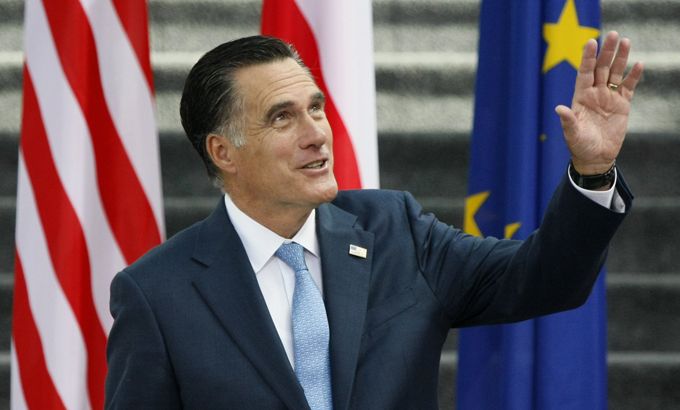
Foreign policy: Romney’s political tightrope
How would the Republican presidential candidate handle foreign affairs if he was elected?
As the Republican presidential hopeful concludes his international trip, we ask what Mitt Romney’s foreign policy would look like if he was elected.
|
“When you look at Mitt Romney’s character, that just is not much thinking outside the box beyond rehashing what Obama has done.“ – Ali Gharib, a national security reporter for Think Progress |
For most of the presidential campaign season, foreign policy has barely got a look in as the candidates focus on the troubled economy.
But there is another argument as to why international affairs have not featured prominently in Mitt Romney’s speeches – simply because his ideas are too similar to his rival, President Barack Obama.
When Romney has addressed foreign policy, for example during his speech to American veterans last week, or in Jerusalem on Sunday, he attacked president Obama’s leadership.
Romney contends that the last few years have been a time of declining influence and missed opportunity for the US.
|
“The vagueness and opacity in his statements suggests that he is manouevering politically rather than focusing on real changes in policy if he were elected …. His preoccupation now is getting elected and not really caring what comes afterwards for the time being.“ – Bruce Fein, a former senior policy adviser to the Ron Paul 2012 presidential campaign |
On Afghanistan, he criticises the president for “politicising decisions on troop levels and transition timetables”. However both say that their goal is to end combat operations by the end of 2014.
The US president and the Republican candidate agree that something should be done to end the conflict in Syria – but neither have provided any real plan other than to criticise Russia for its support of the al-Assad government.
Romney refers to Iran as the US’s biggest national security threat.
During his Jerusalem speech he said that any and all measures must be used to keep Iran from developing a nuclear weapon.
He said: “We must not delude ourselves into thinking that containment is an option. We must lead the effort to prevent Iran from building and possessing nuclear weapons capability. We should employ any and all measures to dissuade the Iranian regime from its nuclear course, and it is our fervent hope that diplomatic and economic measures will do so.”
He also said that he recognises Israel’s right to defend itself. But that is Obama’s policy as well.
So when it comes to foreign policy, what can we expect from a Romney presidency?
To discuss this we are joined by Liz Mair, a former adviser to Texas governor Rick Perry; Bruce Fein, a former senior policy adviser to the Ron Paul 2012 presidential campaign; and Ali Gharib, a national security reporter for Think Progress.
|
“In conducting trade with America, it [China] permits flagrant patent and copyright violations … forestalls American businesses from competing in its market … and manipulates its currency to obtain unfair advantage. It is in our mutual interest for China to be a partner for a stable and secure world, and we welcome its participation in trade. But the cheating must finally be brought to a stop. President Obama hasn’t done it and won’t do it. I will.” Mitt Romney, the Republican presidential candidate, about China |
ROMNEY’S VISION: FOREIGN AFFAIRS:
- Romney supports Obama’s plan to withdraw US troops by the end of 2014
- Romney: Afghanistan position could change with changing commanders
- Romney says he opposed negotiations with the Taliban to end fighting
- Romney plans to order a review on Afghanistan’once elected
- Romney using the Arab Spring as an issue in the presidential race
- Romney: Concerns over Islamist fighters in Arab Spring countries
- He said the Arab Spring was a result of Obama abandoning Bush’s “Freedom Agenda”
- Romney said halting a nuclear Iran is the top national security priority
- Romney wants to push for a greater diplomatic isolation of Iran
- Romney staff: US should sanction Iran’s petroleum industry
- Romney said US needs to increase pressure on Iran through sanctions
- Romney staff said he would back Israel’s decision to attack Iran